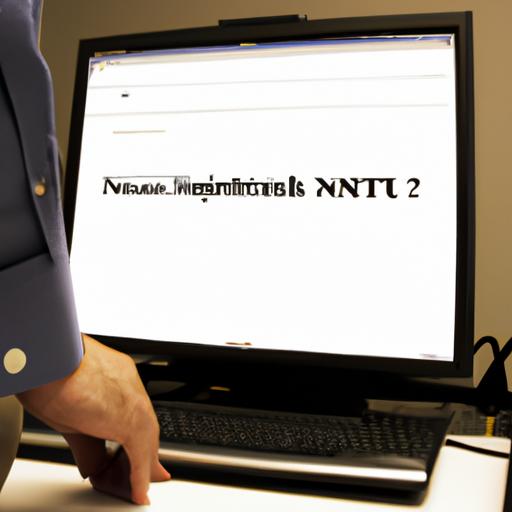Phishing emails have become a common tactic used by scammers to trick people into providing their personal information. In recent times, scammers have also targeted Nova Southeastern University Webmail users with phishing emails that appear to be legitimate. It is crucial to be aware of these phishing emails and know how to identify them to protect yourself from potential financial and identity theft.
Phishing emails are designed to appear as if they are from a trustworthy source, such as a bank or a reputable company like Nova Southeastern University. These emails typically contain a link or attachment that, when clicked, directs the user to a fraudulent website that asks for their personal information. Phishing scammers will use this information to steal the victim’s identity, commit financial fraud, or install malware on their computer.
As a Nova Southeastern University Webmail user, it is essential to be aware of these phishing emails and know how to identify them. This article will provide you with the necessary information to protect yourself from these scams.
What is Nova Southeastern University Webmail?

Definition of NSU Webmail
Nova Southeastern University Webmail is an email service provided to students, faculty, and staff of Nova Southeastern University. NSU Webmail is a web-based email client that allows users to access their email accounts through any internet-connected device. It is an essential tool for communication between students and faculty and helps to keep the NSU community connected.
Features and benefits of using NSU Webmail
NSU Webmail provides several features and benefits to its users. One of the most significant benefits is accessibility, as users can access their email from any device with an internet connection. The email client is also user-friendly and easy to navigate, with a simple and organized layout.
Another feature of NSU Webmail is its integration with other NSU services, such as the online portal for class registration and grade tracking. The email service also provides a large storage capacity for emails and attachments, ensuring that users do not have to worry about running out of space.
Overall, Nova Southeastern University Webmail is a reliable and efficient email service that provides many benefits to its users. It is an essential tool for communication and staying connected within the NSU community.
What is Phishing?

Phishing is a type of cyber attack in which scammers try to trick individuals into providing them with sensitive information, such as login credentials, credit card details, or social security numbers. These scammers use a range of tactics to convince their targets that they are legitimate, often posing as a trustworthy organization or individual.
Definition of Phishing
Phishing is a form of social engineering that attempts to deceive individuals into revealing sensitive information by impersonating a trustworthy entity or person. It typically involves the use of email, text messages, or phone calls to lure victims into clicking on a link or downloading an attachment that contains malware or a malicious website.
Common Tactics Used by Scammers
Phishing scammers use a variety of tactics to deceive their targets, including:
- Impersonating a trusted source: Scammers may pose as a legitimate organization, such as a bank or a university, and send emails or messages that appear to be from that organization.
- Urgency or fear tactics: Scammers may use language that creates a sense of urgency or fear, such as threatening to close an account or claiming that there has been suspicious activity on an account.
- Spoofing: Scammers may spoof or fake the sender’s email address or phone number to appear as if the message is coming from a trusted source.
- Phishing websites: Scammers may create fake websites that look similar to a legitimate website to trick victims into entering their login credentials or other sensitive information.
Importance of Being Able to Identify Phishing Emails
Being able to identify phishing emails is crucial to protecting yourself from potential financial and identity theft. By knowing how to spot a phishing email, you can avoid falling victim to these scams and keep your personal information safe. In the next section, we will discuss a phishing email warning that has recently targeted Nova Southeastern University Webmail users.
Warning: A Phishing Email

Phishing scammers have targeted Nova Southeastern University Webmail users with a fraudulent email that appears to be from the university’s IT department. The email claims that the user’s account has been compromised and that they need to click on a link to reset their password.
Overview of the phishing email targeting NSU Webmail users
The email is designed to look official, with the Nova Southeastern University logo and a professional tone. The subject line reads: “NSU Webmail Account Deactivation – Action Required.” The email body asks the user to click on a link to reset their password, claiming that their account has been compromised.
Details about the email and its contents
The link in the email directs the user to a fraudulent website that looks like the real NSU Webmail login page. The user is prompted to enter their username and password to reset their account. Once the user enters their information, the scammers can access their account and steal their personal information.
Consequences of falling for the scam
If a user falls for this phishing scam, they can suffer serious consequences, including identity theft, financial fraud, and loss of sensitive data. It is essential to be aware of these types of scams and know how to identify them to protect yourself from potential harm. In the next section, we will provide you with tips on how to protect yourself from phishing emails.
How to Protect Yourself from Phishing Emails
Phishing emails can be challenging to identify, but there are some key features to look out for to protect yourself from these scams. Here are some tips that can help you identify and avoid phishing emails:
Tips on How to Identify and Avoid Phishing Emails
- Be cautious of emails from unknown senders. If the email looks suspicious, do not open it.
- Check the sender’s email address. Scammers will often use a fake email address that looks similar to a legitimate one.
- Be wary of urgent requests for personal information. Legitimate companies will not ask you to provide sensitive information via email.
- Check the URL of the website you are being directed to. Phishing websites will have URLs that do not match the legitimate website.
- Look out for spelling and grammatical errors. Phishing emails will often have spelling and grammatical errors that a legitimate company would not make.
Best Practices for Protecting Your Personal Information
- Keep your antivirus and security software up-to-date.
- Use strong passwords and change them regularly.
- Be careful when clicking on links or downloading attachments from unknown sources.
- Use two-factor authentication whenever possible.
- Regularly check your bank and credit card statements for any suspicious activity.
By following these tips and best practices, you can protect yourself from phishing emails and ensure your personal information remains secure.
Conclusion
In conclusion, protecting yourself from phishing emails is crucial, especially as a Nova Southeastern University Webmail user. Phishing scammers are becoming increasingly sophisticated in their tactics, making it challenging to identify fraudulent emails. However, by following the tips outlined in this article and remaining vigilant, you can protect your personal information and avoid falling victim to these scams.
Remember to always double-check the sender’s email address, avoid clicking on suspicious links or attachments, and report any suspicious emails to the appropriate authorities. By staying informed and taking the necessary precautions, you can ensure your online safety and security.
Protecting your personal information is essential, and it begins with being aware of potential threats like phishing emails. Keep these tips in mind and stay safe online.
